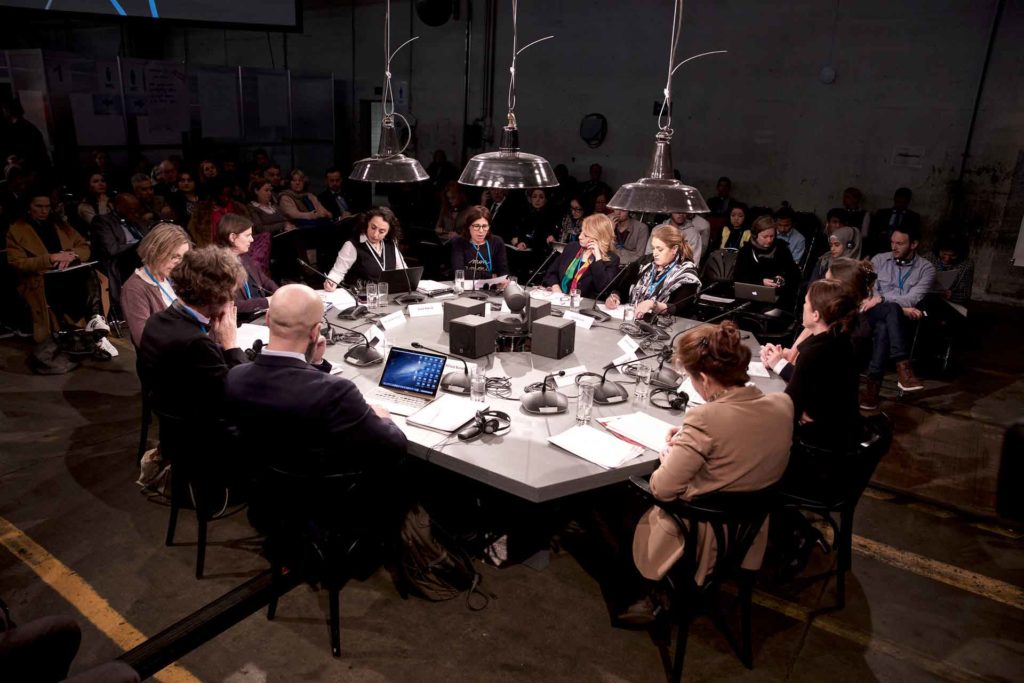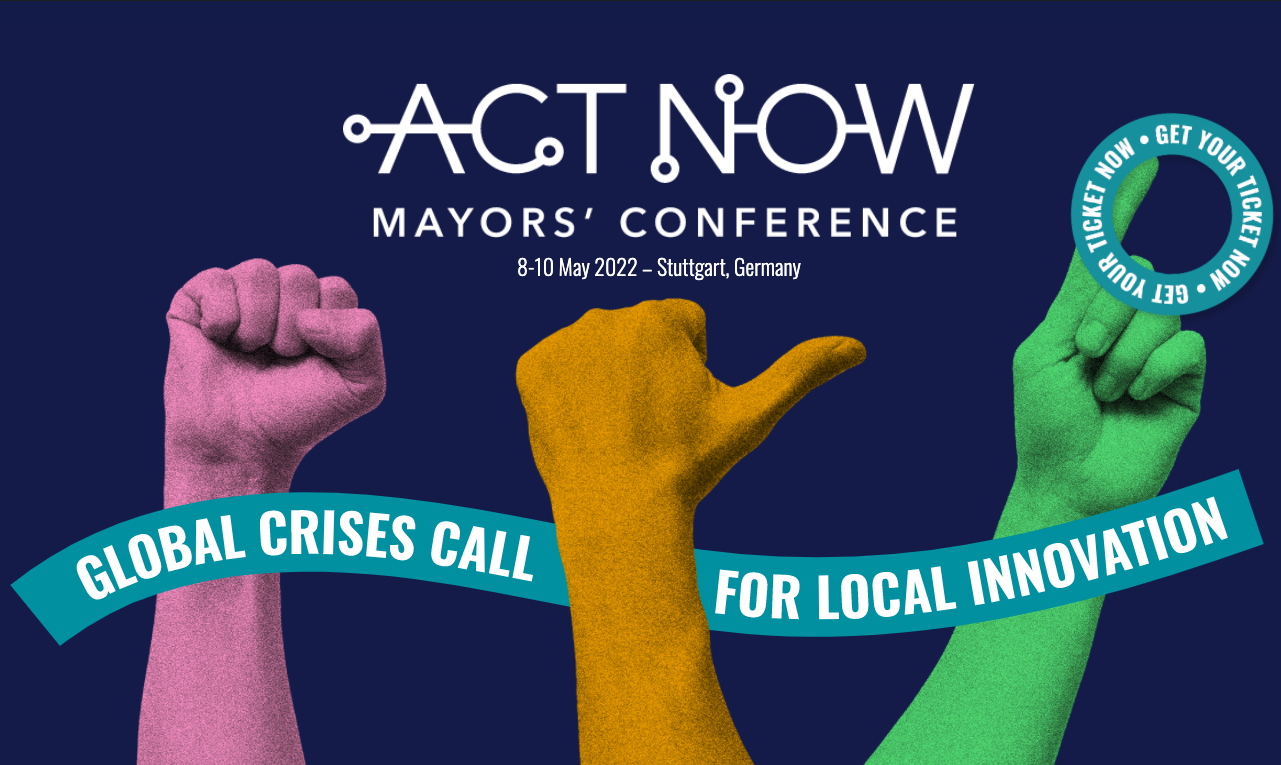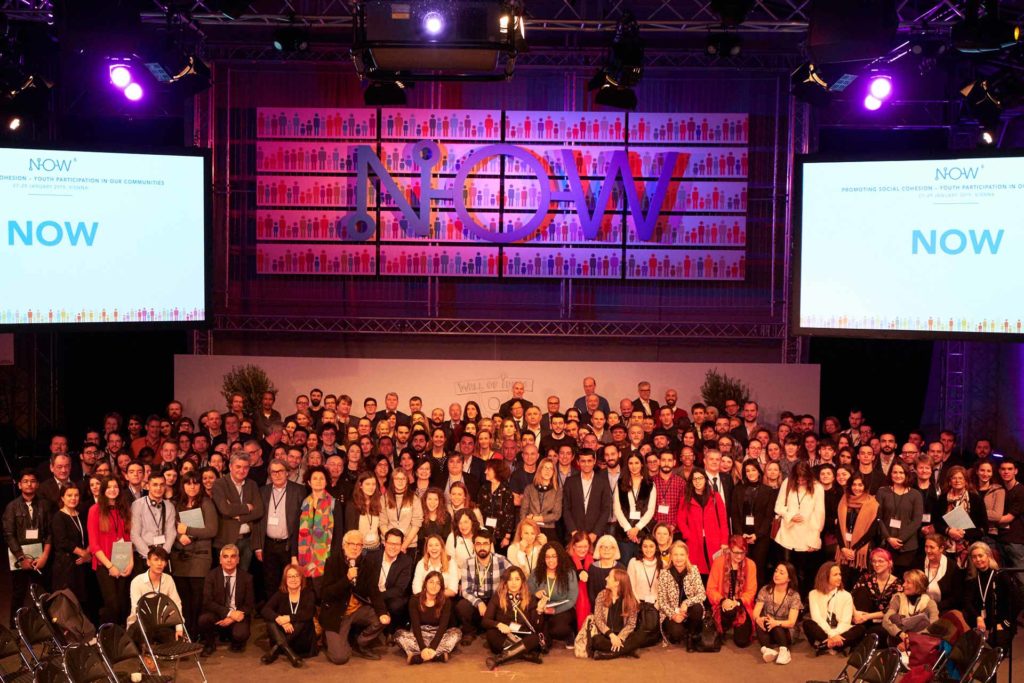On the conference for the first time a meeting of local decision-makers, outstanding experts, EU-Parliamentarians and refugees focused on displaced children. Under the banner “Children under the Radar” 170 international participants – from Lebanon, Jordan, Greece, Turkey, Germany and many further countries – discussed the issue of displaced children for two days to identify central challenges and promising solutions.
At the Third International Mayors’ Conference NOW, curated by Viola Raheb, 4 panels and 12 workshops offered space to discuss main problems and share solutions in an area which is often overlooked, even though children make up half of all current refugees. In addition, three round tables provided insights into municipal and European perspectives and refugees shared their stories and experiences.
Highlights of the third International Mayors’ Conference NOW
In four panel-discussions participants exchanged their views and shared their experience with each other on specific topics:
- Panel 1 – Educational realities of refugees in the MENAT Region
- Panel 2 – Diversity and social cohesion in European classrooms
- Panel 3 – Human trafficking and exploitation – daily realities of refugees on the move
- Panel 4 – Avoiding the emergence of “parallel societies”
The “Voices” are a new format of the NOW Conferences to hear the statements of concerned groups on various political levels and different backgrounds.
- Voices of Mayors
- Voices of Europe
- Voices of Refugees
As on the first NOW Conference the Mobile Music School led by Marwan Abado performed on stage.
- Concert – “Sounds of Hope and Connecting Mobile Music School”
Major insights of the conference
Children are the most vulnerable members of society and especially those on the move. They have special needs, which have to be met by an integral approach to avoid the emergence of a “lost generation”. This goal requires long-term commitment of human and financial resources and efforts in various areas:
- Financing and international cooperation: We have to ensure opportunities and perspectives for children and their families, not restrict assistance to basic need response
- Humanitarian aid and decrease of vulnerability: Refugees face social and economic exclusion, which increases their vulnerability on multiple levels, and puts them on or under the poverty line
- Legislation: Refugee children are often denied their right to education until they obtain the residence permit, a fact that violates the UN Convention on the Rights of the Child.
- Refugee children born in transit countries, like Lebanon, often remain without nationality, as they cannot be registered. As a consequence, they cannot enter Syrian territory but are also not allowed to remain in the hosting country.
- Protection from sexual violence: The phenomenon of teenage marriages is increasing in Europe. It is linked to poverty and a lack of regulated family reunion, but also covers sexual abuse of minors.
- Protection from exploitation: Smuggling and trafficking are more and more interconnected. Exploitation is a result of restricted or no access to official travel and to the labour market.
- Education: Refugee children need inclusive teaching methods and empowerment in order to support their full integration within society.
As a follow-up to the third NOW-Conference, working groups are being set up to work on the topics of education, exploitation, traumatisation and gender, and a team of Mayors from different countries is working on a toolkit to provide simple and feasible guidelines on the communal level. In the final declaration of the conference the participants made a promise:
“We […] pledge to continue developing and sharing our best-practice examples, to stand up for an open society, which shall protect the weakest and welcome those in danger with open arms and an open heart.”


